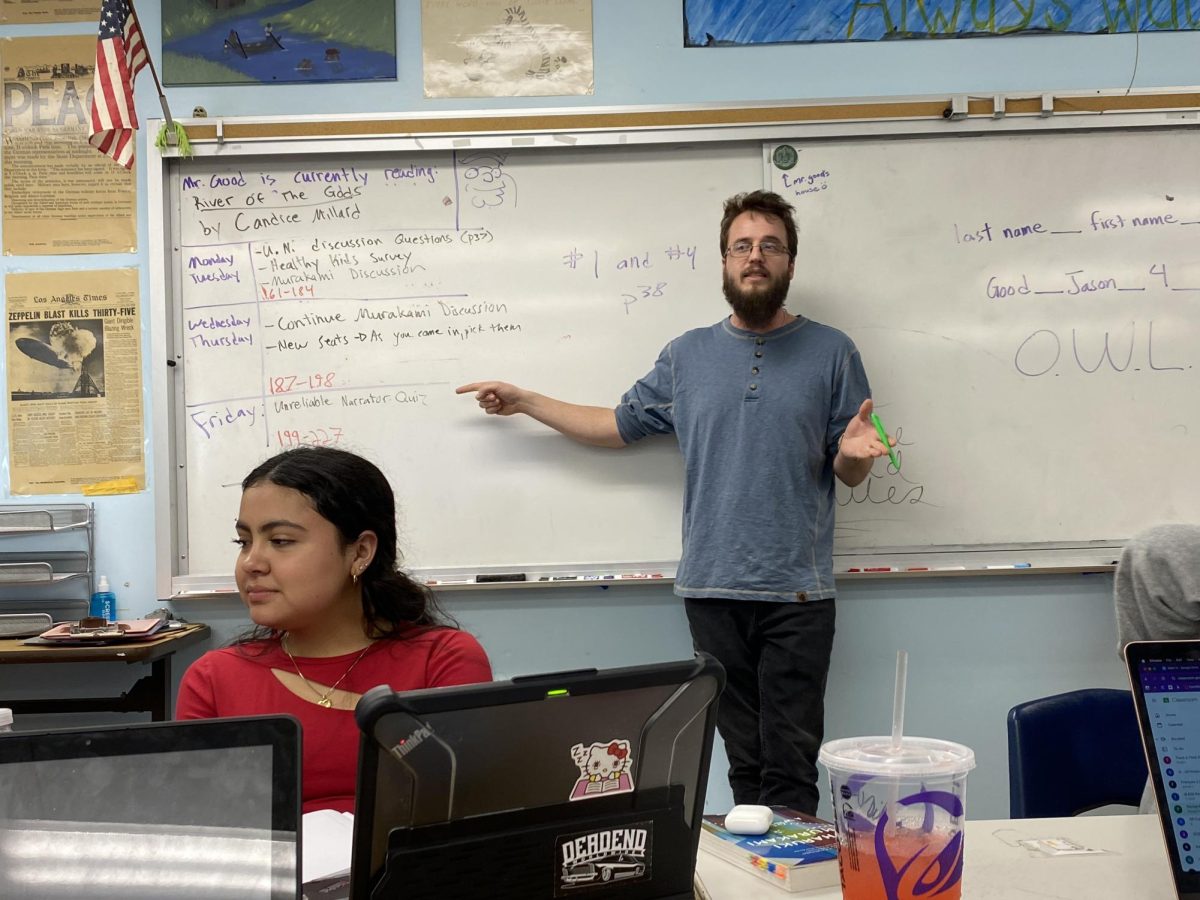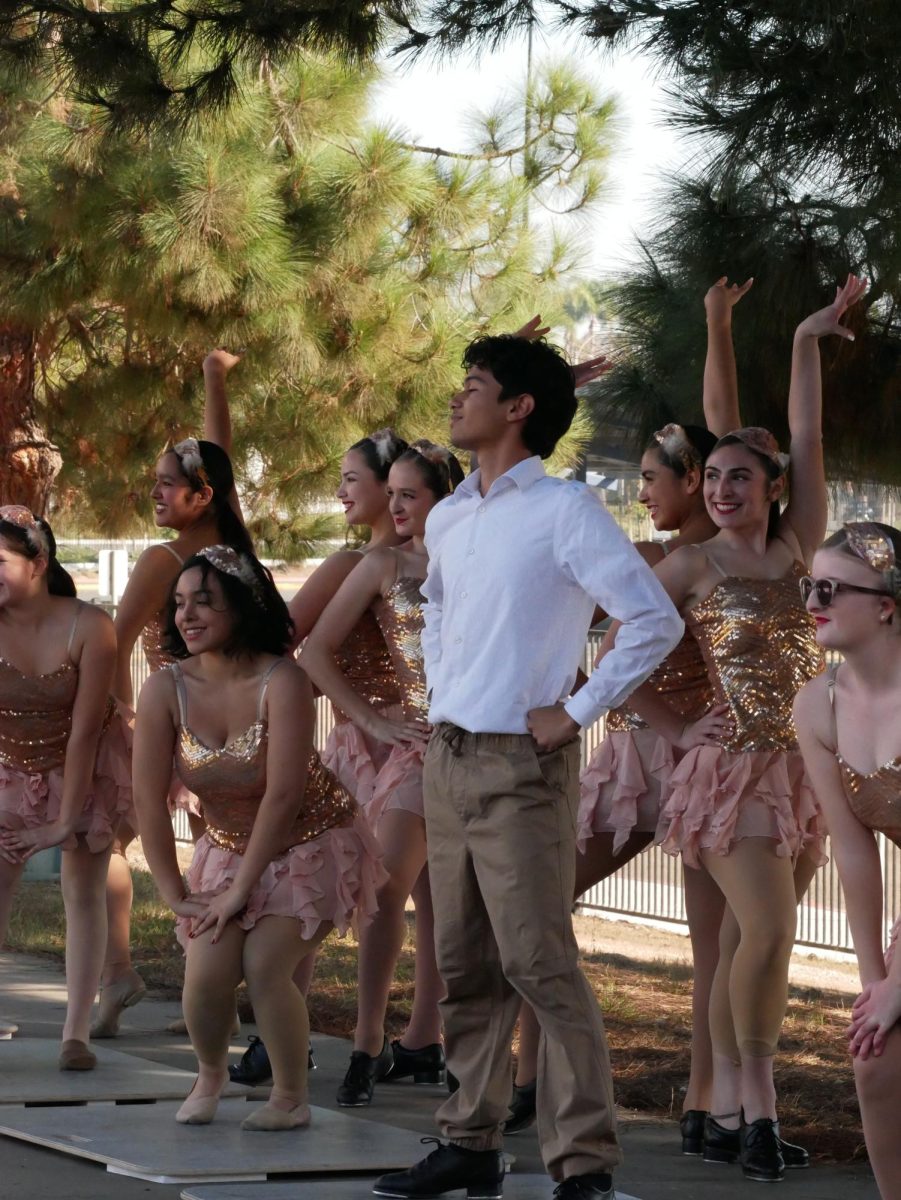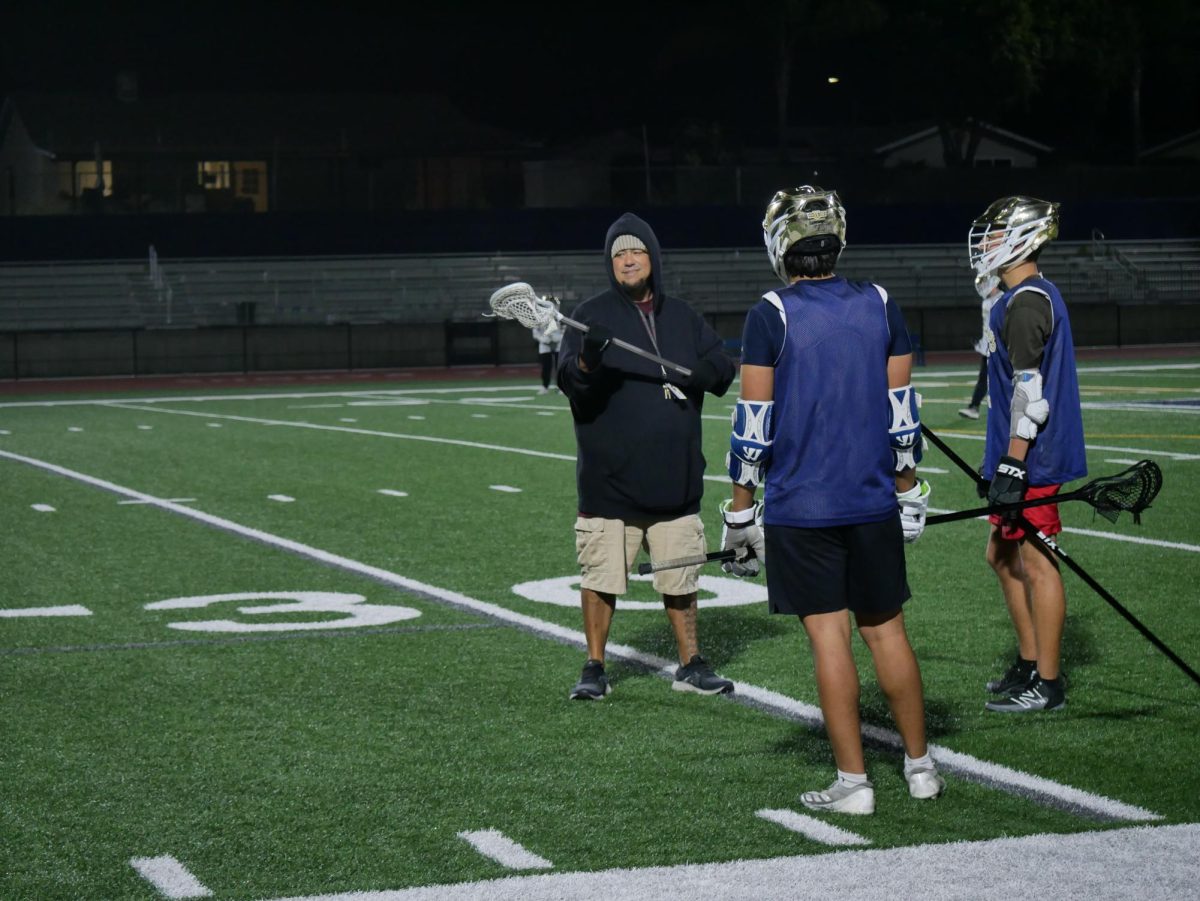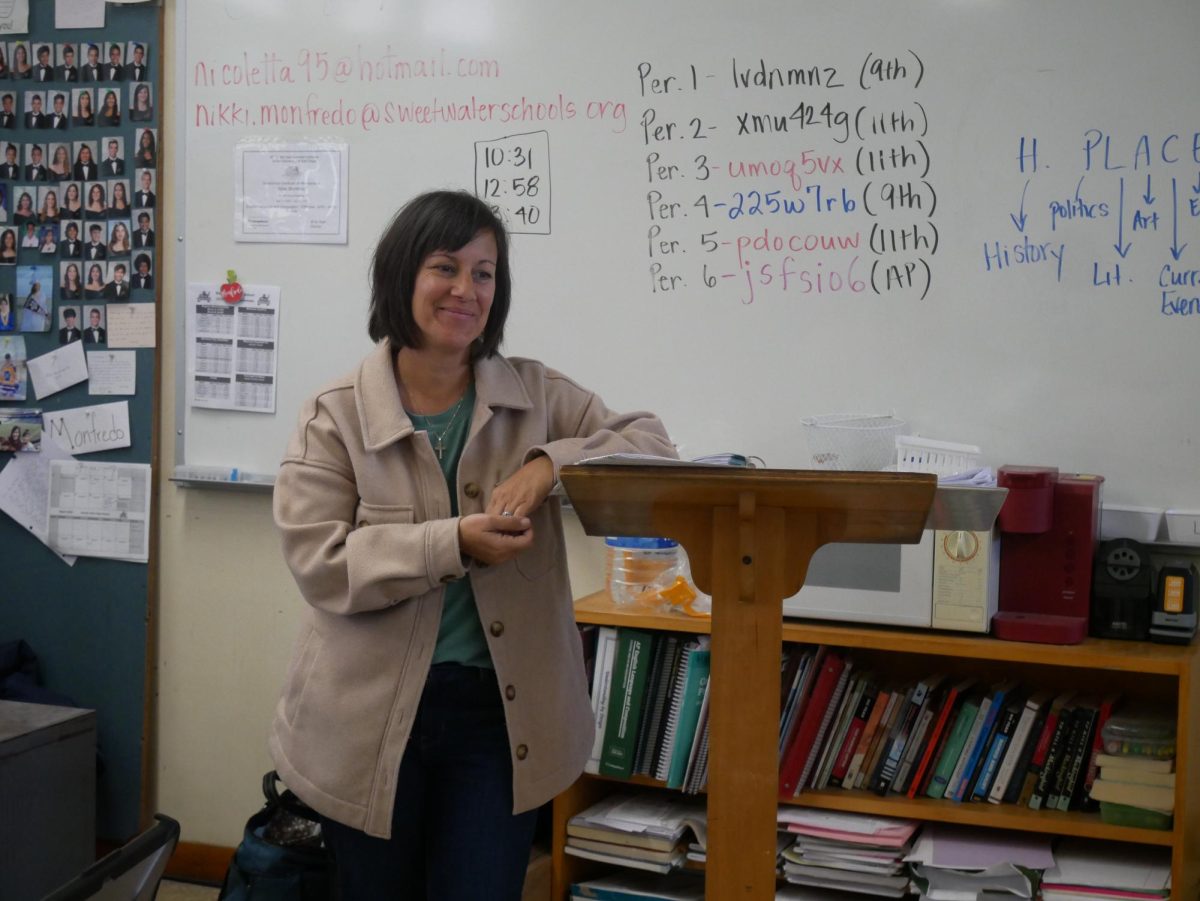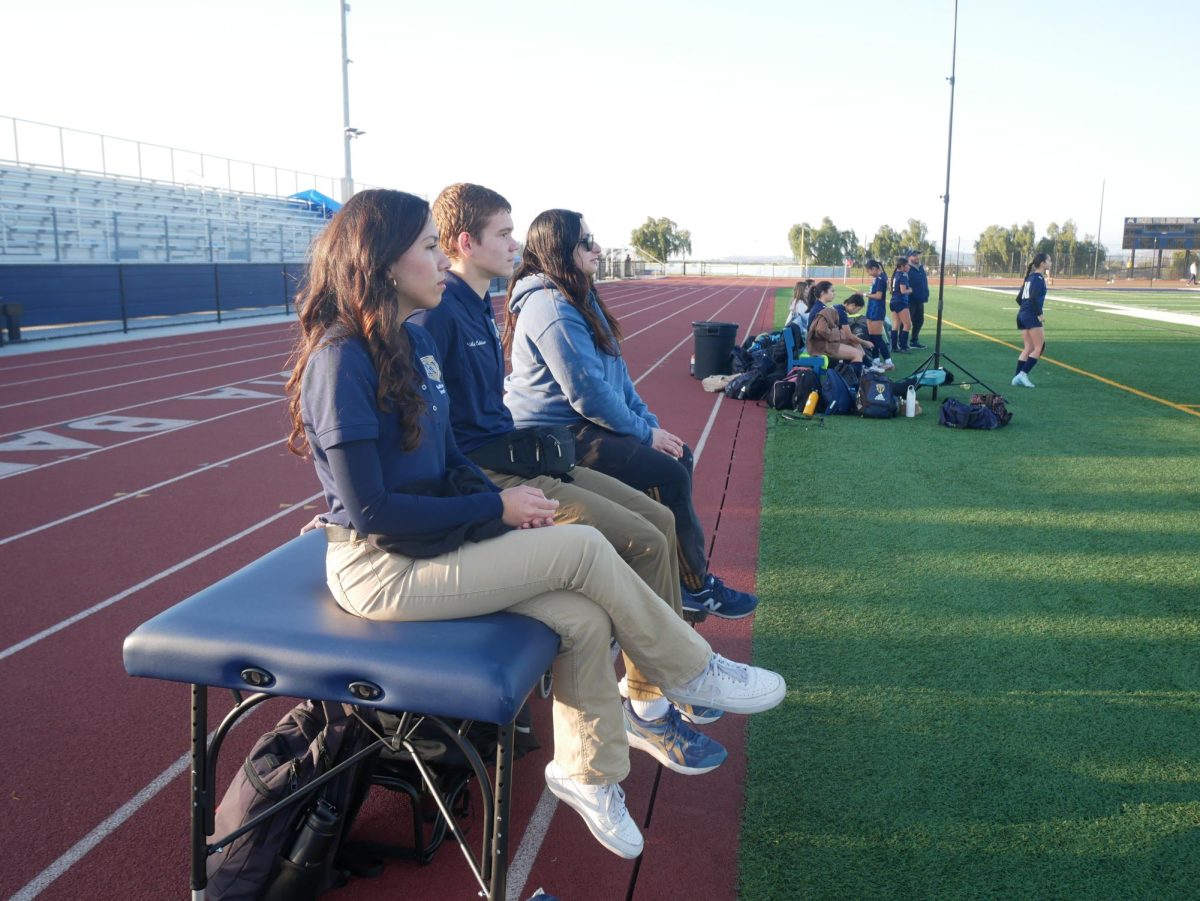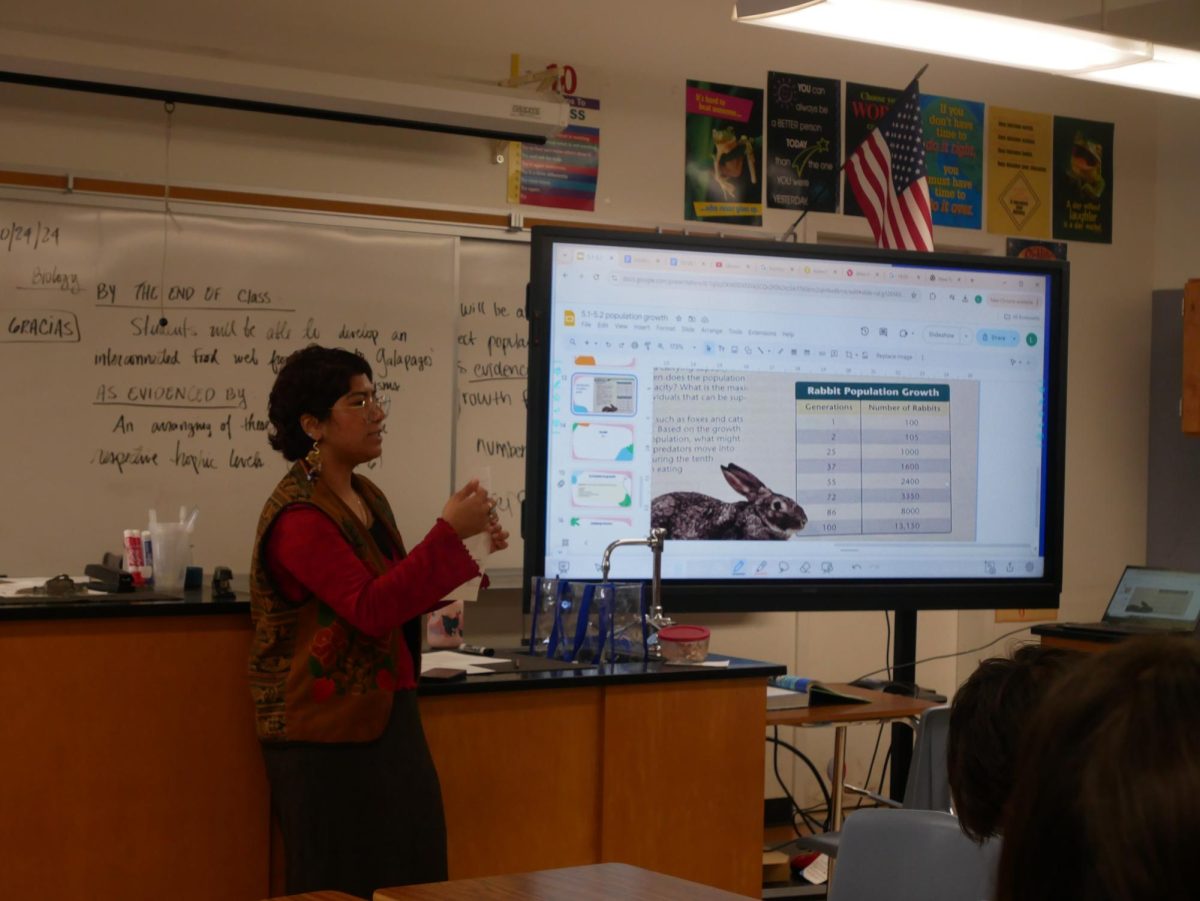Scattered throughout the school, students enter their classroom as the bell rings. Amidst the countless classes offered at Bonita Vista High, there is one class that allows students to learn English and feel comfortable to immerse themself with the language. For students who are not fluent in the English language, English Language Development (ELD) classes are an impactful way for them to practice and develop their skills.
First year ELD 1-2 teacher Jason Good most commonly teaches International Baccalaureate (IB) Literature Higher Level (HL) 1 and Theory of Knowledge. However, he decided to teach the class to help fill in the empty spots needed to teach ELD students. Additionally, being close to ELD 1-2 teacher Raymond Chhan, Good encouraged him to teach ELD along with him.
“We needed someone to teach ELD, so I convinced Mr. Chhan to join me. I thought we could do it together because we typically work very well,” Good said.
While deciding to teach ELD class together, Chhan also had former ELD teacher Veronica Mendez in mind, to give her an opportunity to teach an IB English course rather than an ELD class. Moreover, similarly to both Chhan and Good, Advanced Placement (AP) Literature and ELD 4 teacher Juan Garcia took up the opportunity to fill in the positions needed for the ELD classes to function.
Coming in as first year ELD teachers, both Good and Chhan attended different training sessions to understand the information needed to teach the students. With various questions in mind, they reached out to Mendez and IB Spanish, AP Spanish literature teacher Lillia Meza for guidance on how they teach students Spanish. They continue to depend on the district textbooks as a reliable resource.
“A big part of it was reviewing what the district’s curriculum was. I went to Ms. Meza, who teaches Spanish. I asked her for help, because I figured I was doing the same thing, but in reverse, because every single one of the students in my class [has Spanish as] their native language,” Good said.
For Garcia, his first thought when teaching his ELD class was to not use his Spanish in class. In order for his students to improve and develop their skills, he had a “strict English only” response when working with his students. However, his viewpoints on teaching have evolved.
“I was not going to use my Spanish at all so I could make a connection with the students and to be able to teach them. Throughout the course, my mentality on it evolved,” Garcia said. “I started to recognize that the skills they were learning were just as important, if not more important, than being able to help them with their pronunciation.”
Garcia further mentions how he enjoys his class—despite it being a small group of 12 students. However, this being an English development class, Garcia has faced challenges regarding communication and making sure his students are on the same page of the lesson.
“One of the challenges was finally realizing that not all of the students understood what was going on at times in the class in terms of instruction. The biggest challenge for me was being able to communicate with them [in English] was challenging, but also easy to understand [in Spanish],” Garcia said.
Similarly, both Chhan and Good find the language barrier to be an ongoing challenge. Chhan finds it difficult to teach different rules, conjugation or vocabulary with his limited ability to communicate in Spanish. Despite having different resources to help break the barrier, he continues to find challenges when teaching.
“I have some knowledge of Spanish, but I’m not fluent enough to have a conversation. We have an instructional aid that speaks Spanish and I also have a peer tutor in the class,” Chhan said. “But even then, trying to encourage students to speak English is also hard because they feel self conscious.”
Unlike the usual English classes they teach, ELD can be compared to teaching a different type of subject. For instance, rather than focusing on analyzing literature, the teachers have to teach non-fluent students the foundation and rules of the English language.
“The curriculum is very much outside of my comfort zone. The way that the teaching works is not something I’m practiced at so it feels like teaching a completely different subject area to me,” Good said.
As the course continues throughout the year, the students further develop their knowledge in the English language. By doing so, they are given opportunities to take tests to either move up or down the level they are in. As stated by both Good and Chhan, a lot of their students have been promoted to the next level—which is a bittersweet moment for them as students leave their classrooms for a higher level.
“Mr. Chhan and I were really excited to see it happen, but [we’re] also sad because they go to a different class. I think that making sure that every student in the class does get to the next level up is my goal,” Good said.
Regardless of the challenges, Chhan describes the positive and memorable aspects of teaching his ELD class. He states that because the students work hard to learn the English language, they get excited when they are able to understand the content they are learning. He finds their reactions and their hard work rewarding.
“One of my students had trouble saying the word ‘because’, and I sat there with him for maybe five minutes, and I helped him pronounce the word. When he said it right, he was happy. The class cheered for him, and that was just one word,” Chhan said, “Seeing my students able to use English and understand how to write and speak is rewarding.”
Garcia also appreciates his students’ dedication and work. He finds it as a unique aspect compared to his other classes. This further motivates him and encourages him to teach ELD students.
“I love the work ethic there. Some of the kids take real pride in their ownership of their work. It’s a fun class. I voluntarily signed up to do it again because I’m really enjoying the atmosphere of it. They’ll crack jokes with me, and it’s been a good experience,” Garcia said.
With both challenges and rewarding experiences charging the teachers when teaching their ELD class, they find strong bonds inside and outside of the classroom. Overall, ELD classes provide its students the space to learn, express themselves and bond with their classmates.
“They definitely use Spanish to try to learn English together. The cool thing is that because [the class is] so small, they’re able to have relationships with everyone else. The majority of them are really good friends. They hang out together every single day at school, so they’re not just classmates. They are friends outside of school,” Chhan said.

